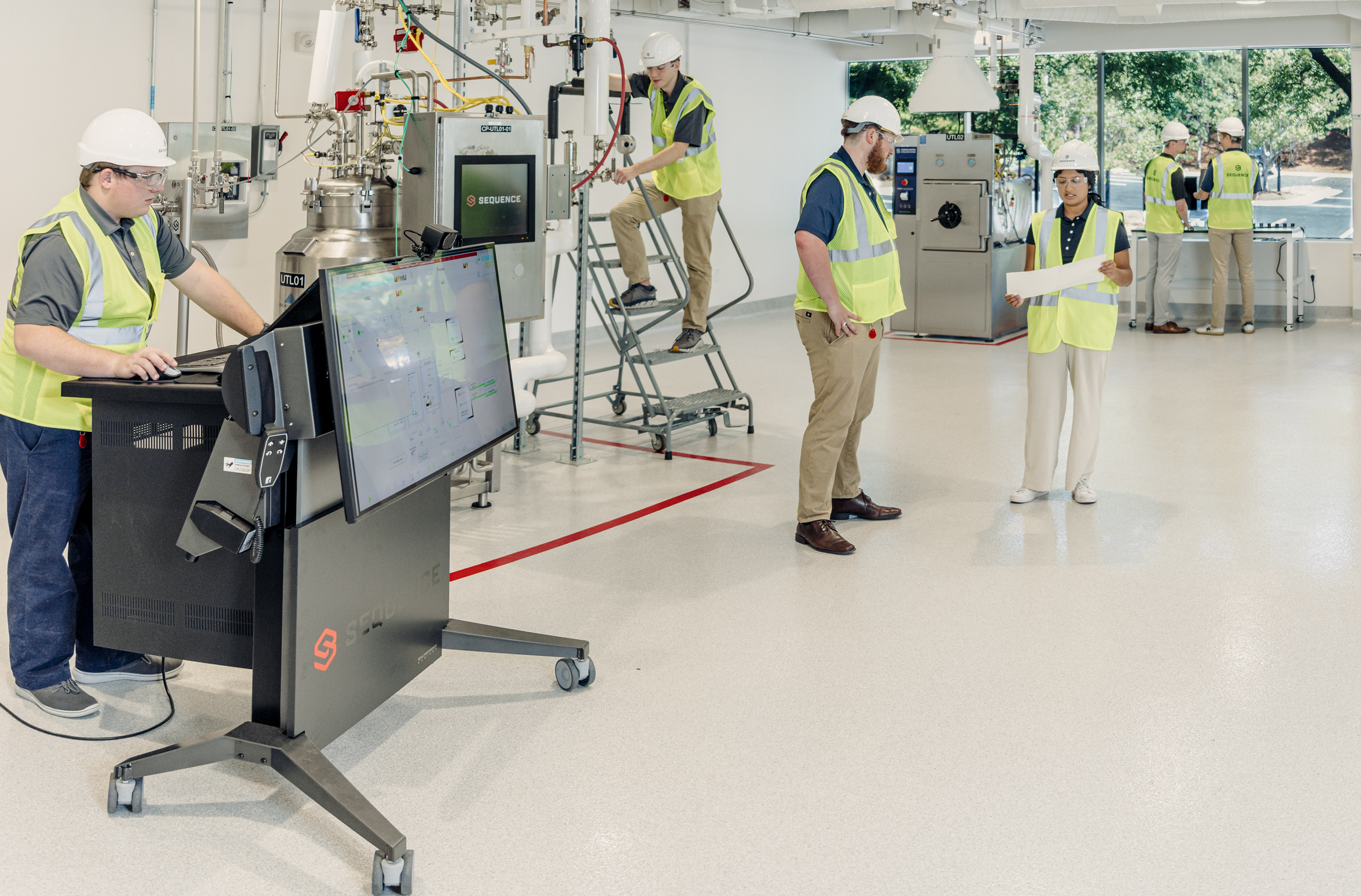
Sequence Biopharma Training Center Reflects Need for Speed
The continued growth of North Carolina’s life sciences sector serves as a springboard for one Triangle company that’s accelerating how highly skilled talent is trained.
Morrisville-based Sequence Inc., which provides consulting services for the biopharmaceutical manufacturing sector focusing on commissioning, qualification and validation, and digital solutions, has opened a new 44,000-square-foot training center designed to get its engineers up to speed quickly on biopharmaceutical manufacturing processes. 
In a twist on how workforce training is typically managed, Sequence has built a fully functional mock manufacturing facility to train its engineering consultants through an eight-week, immersive program touching on the key aspects of manufacturing processes. Consultants employed by Sequence will use their newfound skills to help clients design and test the functionality of a pharmaceutical manufacturing facility prior to FDA inspection for it to be deemed fit for use to manufacture drugs.
“Working with real equipment lets trainees connect the dots between theory and application,” Justin Cook, vice president of talent management at Sequence, said in a statement announcing the center’s opening. “Under normal circumstances, it can take years to get exposure to different types of equipment and software on a client site.”
Keeping It in North Carolina
Sequence is a prime example of how workforce development in life sciences is becoming more urgent and more hands-on. With demand rising for skilled manufacturing employees, including scientists and engineers, drug companies can ill afford to spend years learning how to manage complex manufacturing operations. A recent report by the Coalition of State Bioscience Institutes noted 8.3% hiring growth in life sciences from 2020 through 2022, compared with 6.9% in the private sector as a whole. 
North Carolina’s standing as one of the top states for life sciences companies in employment was a prime reason Sequence chose to build its new training center in the Triangle, company officials said at the Sept. 26 ribbon-cutting ceremony to mark the center’s opening.
Laura Rowley, vice president of life science economic development at the North Carolina Biotechnology Center, said the Sequence training center adds to the state’s already long list of training sites for biopharmaceutical manufacturing.
These programs, including the Biomanufacturing Training and Education Center at N.C. State University, the Biomanufacturing Research Institute and Technology Enterprise at N.C. Central University, the Pharmaceutical Services Network at East Carolina University and 12 community colleges that offer the BioWork certificate course, show the value of hands-on learning that continues well past graduating from college.
“Of course, the only way to gain experience is through experience, creating an unfortunate dilemma for job seekers and hampering the growth of the workforce,” she said in her remarks at the opening.
Not only does the Sequence Center help the company’s clients as they commission and qualify manufacturing facilities, it also serves as a bridge for new talent to gain the experience they need in life sciences, she said.
Replicating the Manufacturing Process
Sequence’s training program is designed to give engineering consultants expertise in processes and regulations needed to qualify and validate a manufacturing facility.
During the open house, company leaders and consultants-in-training took visitors through various stations inside the mock manufacturing facility. Laboratory space, controlled utility areas and manufacturing sections are all part of the center, replicating what takes place in modern biopharma manufacturing.
Manufacturing processes are controlled by a range of software applications. Engineering consultants learn these digital solutions as part of their hands-on training in process automation and manufacturing operation management.
Pharmaceutical companies face mounting pressures to make their products faster, requiring skilled talent to know the processes more quickly. The challenge is exacerbated by the talent shortage in science and engineering, said Mike Putnam, Sequence’s CEO.
“At Sequence, the lack of qualified talent in our industry has been a concern for a while,” he said. “We decided to find a better way to train and develop the talent we need while making them uniquely qualified to service our pharmaceutical clients.”
Image credit: Sequence
